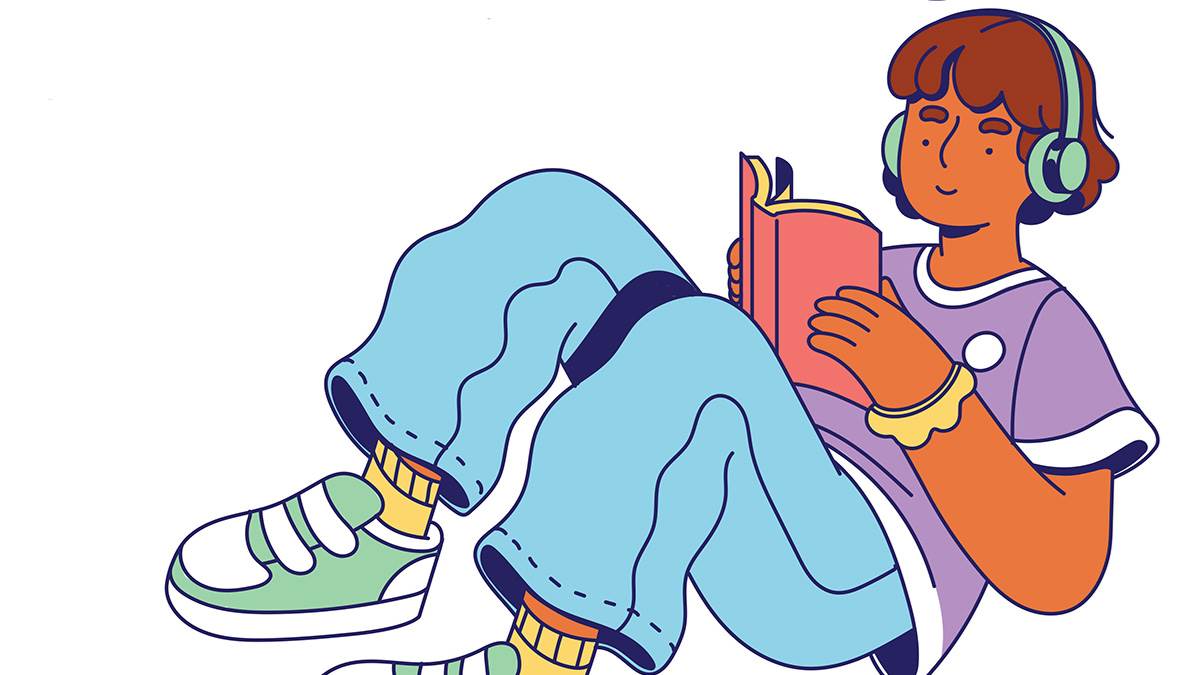Why schools need books featuring neurodivergent characters
Published on: 19 December 2023
We at BookTrust know that children benefit from seeing their experiences, and those of their friends, reflected in the books they read.
We asked Charlotte Webber to share some of the findings from a University of Edinburgh project on neurodiversity in children's fiction.

Researchers at the University of Edinburgh, along with BookTrust and other project partners, have been exploring why it's important for children to have access to fiction books featuring neurodivergent characters.
Fiction books often reflect the social world we live in. They give readers opportunities to encounter characters, stories and settings which reflect their own experiences and/or give them insights into the experiences of others. Indeed, fiction books can help children to understand themselves and others better, and can support their identity development, perspective taking, empathy and wellbeing.
In recent years there has been growing recognition of the importance of representation within books - that is, books which reflect the diverse society we live in. In this article, we discuss the representation of fictional neurodivergent characters, such as Autistic characters and characters with Attention Deficit Hyperactivity Disorder (ADHD), Dyslexia and/or Dyspraxia, among others.
As part of the Neurodiversity and Narrative Fiction project, we interviewed neurodivergent young people (aged 14–17) about their experiences of reading books featuring neurodivergent characters, including the benefits they thought there would be, both to themselves and their peers. We also asked them about their thoughts on the benefits they could have experienced if they had access to these books when they were younger.
In this article, we share some of these insights, and the implications for primary school teachers and librarians.
Benefits for neurodivergent children and young people

Neurodivergent pupils told us that if they had read books featuring neurodivergent characters when they were younger, this could have helped them gain a better understanding of themselves, helped them feel less alone, and feel connected to others who were similar to them:
"I think it would have helped when I was younger. I used to struggle with not really getting why I wasn't able to do things in the same way [as others] so if it was represented in a story then it would be a bit more helping you understand that within yourself."
"When I was a kid, there wasn't really much Autistic representation anywhere and as someone who didn't know they were Autistic, I just felt quite misunderstood."
"I would have known that this was a normal thing to have. And that there were lots of other people like me, it would have helped a lot."
Benefits for peers
If written well, neurodivergent young people also thought that fiction books could have helped their peers increase their knowledge, understanding and acceptance of neurodivergent people:
"It's easier when you see things as a story than if you're just meeting someone, because if you don't understand prior then you'll just think they're weird."
"If maybe they just read a book or they watched a video about it, maybe they would just understand that little bit more."
"When I was diagnosed, I was very scared of telling people because when I got diagnosed, there was still a lot of stigma around the condition. But I feel like maybe if I'd sort of read books at a younger age... I think it probably would have helped me a lot more back then, sort of, telling people."
"It's very important that people of a younger age do learn that stuff at quite a young age as well, so it doesn't hurt anyone's feelings when they get older."
Suggestions for schools
Ensure students have access to books featuring diverse neurodivergent characters
Book provision should reflect the interests, preferences, lives, experiences and abilities of the school community; this includes books featuring different neurodivergent identities (e.g. ADHD, Autism/ASD, Dyslexia) and experiences (e.g. life, learning, friendships).
Considerations around intersectionality are also important - that is, ensuring representation of neurodivergent characters with different ethnicities, gender or co-occurrences, for example. If you are unsure of where to start, you can draw upon trusted sources to refresh your school book provision, for example, BookTrust lists of books about Autism, ADHD and Dyslexia, and other sources of information from BookTrust.
Encourage all students to read books featuring neurodivergent characters
While there are many benefits for neurodivergent pupils from reading books featuring neurodivergent characters, it's important their peers read these books too. Fiction books can be complemented by other resources to develop primary school students' understanding of neurodiversity, for example the Learning About Neurodiversity at School resource.
Project resources
If you would like to learn more, we have also created a short summary of the research findings, which is available to download and read here.
We have also written two academic articles summarising the project findings. These are currently available on the Open Science Framework:





